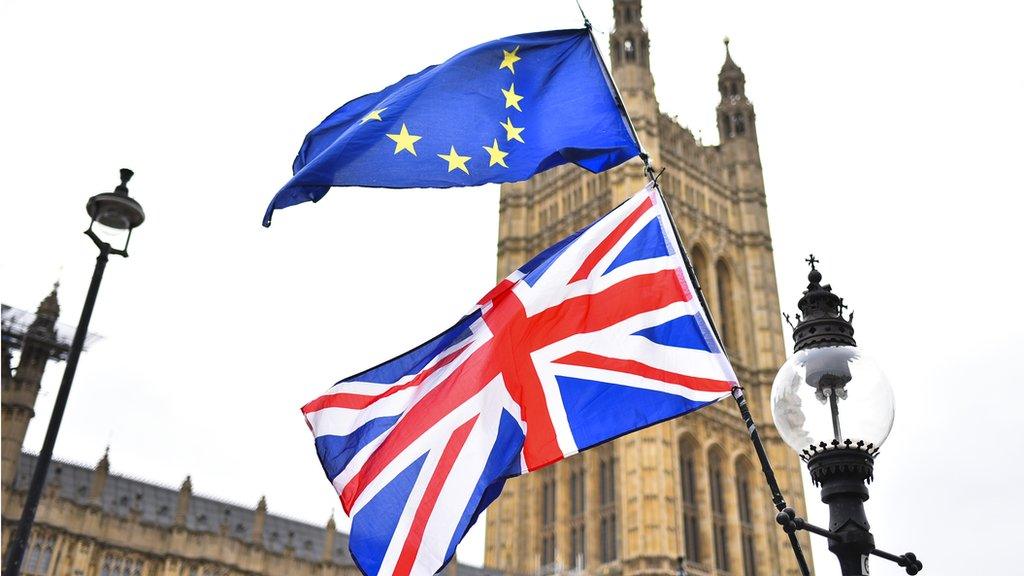Brexit: Vote historic for wrong reasons says Arlene Foster
- Published
- comments
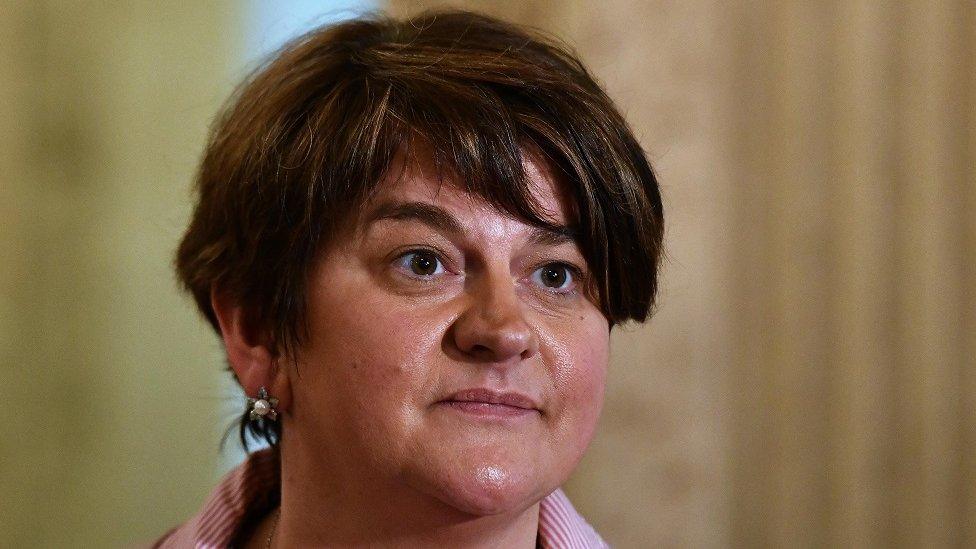
Arlene Foster said her party will "oppose the toxic backstop"
The House of Commons vote on the Brexit deal will be "historic for all the wrong reasons", DUP leader Arlene Foster has said.
MPs are about to vote on the government's withdrawal agreement.
Prime Minister Theresa May has said if MPs vote against the deal it could lead to the break-up of the United Kingdom.
However, in a tweet on Tuesday morning, Mrs Foster said: "We will oppose the toxic backstop and vote against the withdrawal agreement."
The backstop, a mechanism that is included in the withdrawal agreement, is an insurance policy designed to avoid a hard Irish border "unless and until" another solution is found as part of the UK-EU future relationship.
What else has the DUP said?
Speaking at a press conference in Westminster on Tuesday, Mrs Foster also said there was no need for the backstop.
"The Irish prime minister has indicated that he will not be putting up a hard border on the island of Ireland," she said.
"The borders of the past were there for a completely different reason. They were there to stop terrorists, they were there to stop the flow of Semtex [explosives] as opposed to the flow of powdered milk."
She added: "What we want the prime minister to do after today is to go back to the European Union and say that the backstop has to go.
"It has to go because it doesn't have any meaning in terms of what it's trying to do, but instead it separates Northern Ireland from Great Britain."
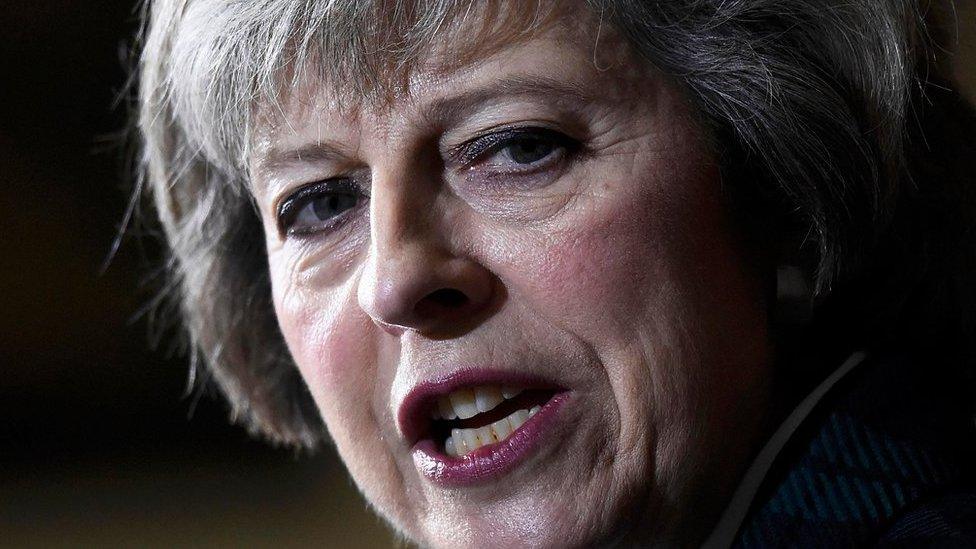
Theresa May has said a no-deal Brexit could lead to the break up of the United Kingdom
What about the 'backstop letters'?
An exchange of letters between the UK and EU, external published on Monday, aimed at winning support for the deal, was dismissed immediately by the DUP.
Theresa May said they offered more reassurances on the Irish border backstop - but the DUP said they offered nothing legally binding.
Sinn Féin leader Mary Lou McDonald said the EU backstop cannot be set aside or diluted.
Sinn Féin does not want to be part of the Westminster Brexit "circus", says Chris Hazzard
"Whatever transpires at Westminster, it is essential that Irish interests are protected. That the economy is protected and that the Good Friday Agreement is protected in all its parts," she said.
Her party's seven MPs will not participate in the vote, in line with their policy of abstentionism.
Independent unionist MP for North Down, Lady Sylvia Hermon, will back the government.
In the House of Lords, the prime minister's Brexit plan suffered its first official parliamentary defeat on Monday night, as peers registered their opposition.
While the Lords motion has no real power, peers voted to reject the deal by 321 votes to 152.
Confused by Brexit jargon? Reality Check unpacks the basics

Analysis: A prime minister standing on the precipice
By Jayne McCormack, BBC News NI Political Reporter
Arlene Foster is right about one thing: this will be a historic day.
We can almost certainly say Theresa May will lose the vote, the question is, by how much?
She has failed to win over the DUP, she has failed to win over those in her party who oppose the deal and she now stands on the precipice of one of Parliament's biggest ever defeats for a government.
The DUP has been described by Tory MP Nigel Evans as the "umbilical cord" that will save the government when it comes to a no confidence vote, if and when Labour tables one.
But it's not clear if the government has a Brexit plan B, and if anything contained in a future deal would be enough to at last win the crucial votes of the 10 DUP MPs.
In other words, grab the popcorn and watch this space.

What happens on Tuesday evening?
It is expected that about 100 Conservative MPs will join Labour and other opposition parties in voting against the deal on Tuesday night.
The vote is due to take place sometime after 19:00 GMT.
Theresa May has urged MPs to get behind her plan and has warned that not voting for it could mean not leaving the EU becomes a possibility.
She made a statement to MPs in Parliament on Monday afternoon and said, as a "proud unionist", she understood concerns about the backstop - and that once the withdrawal agreement was signed, immediate talks could begin with the EU in order to reach a trade deal and avoid entering the backstop.
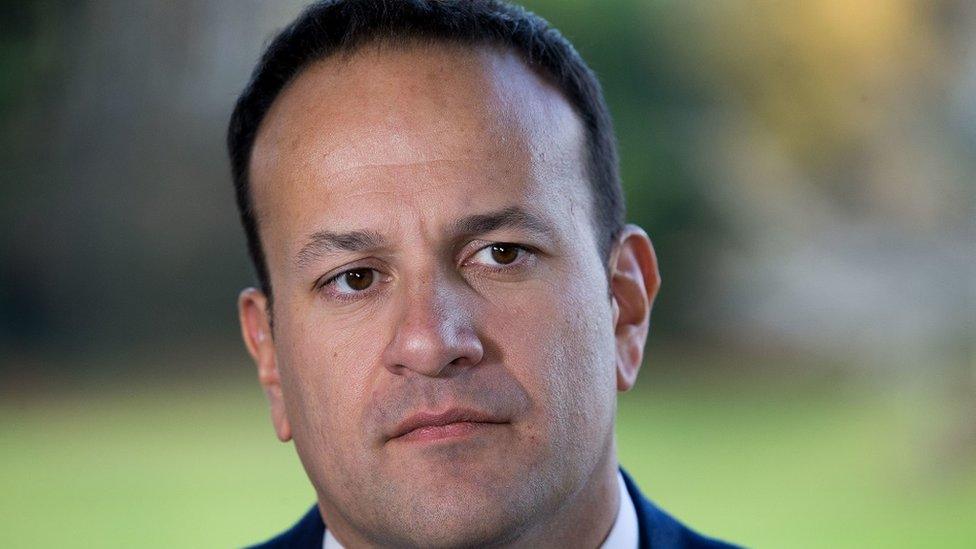
Leo Varadkar said Ireland needed to make every preparation for a no-deal Brexit
Has the Irish government said anything?
Taoiseach (Irish Prime Minister) Leo Varadkar has held a meeting of his cabinet to discuss no-deal Brexit contingency preparations.
The government has circulated four new no-deal memos on areas including the supply of medicines and transport.
Tánaiste (Irish deputy prime minister) Simon Coveney briefed opposition party leaders about the government's plans on Tuesday evening.
On Monday, he said the Republic of Ireland needed to "hold its nerve" this week, and that the government needed to stay close to the British government and EU partners.
- Published14 January 2019
- Published9 January 2019
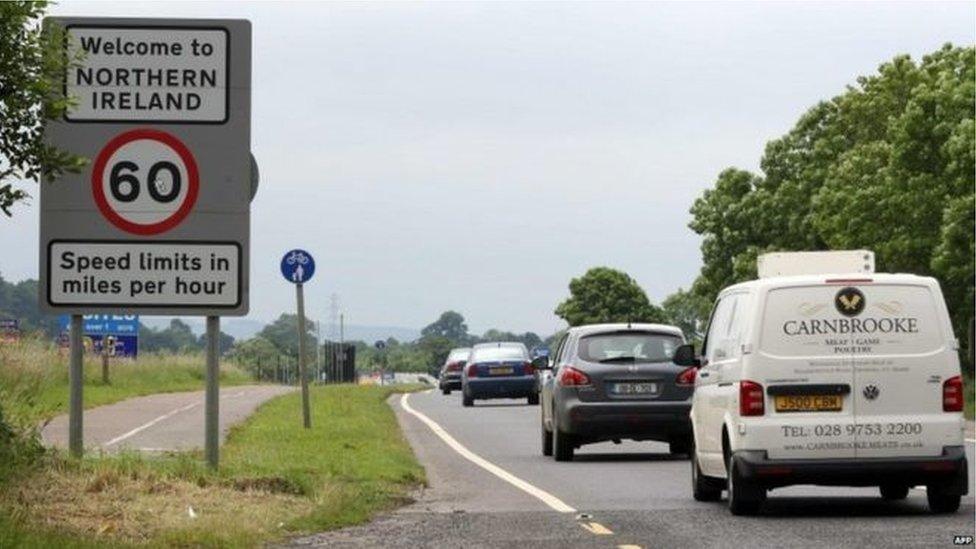
- Published30 July 2019

- Published8 January 2019
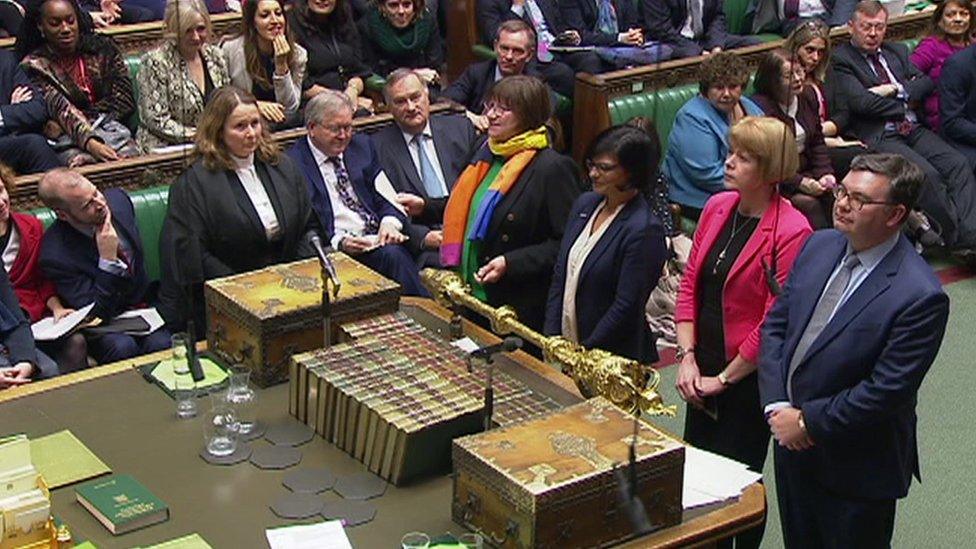
- Published9 January 2019
